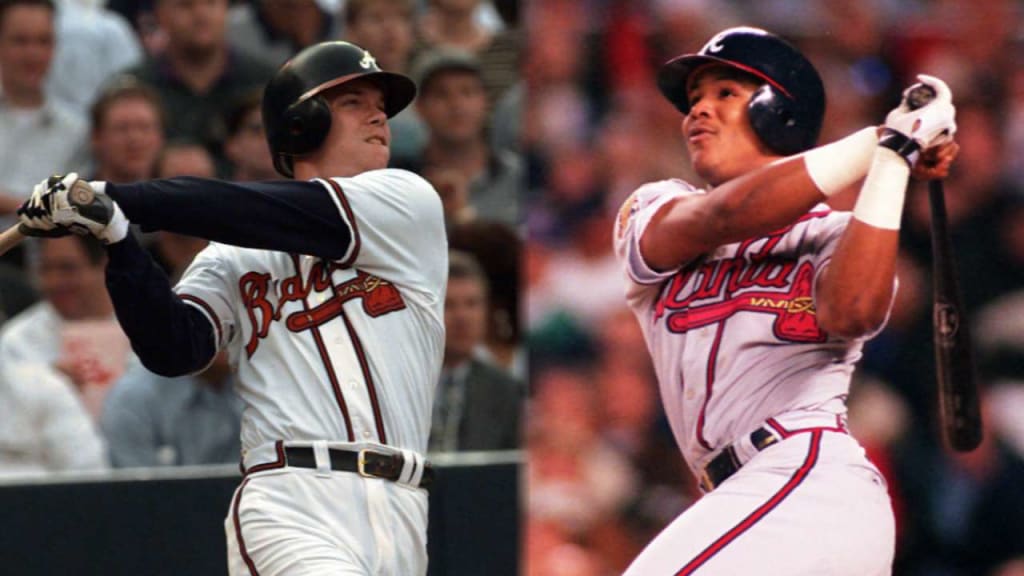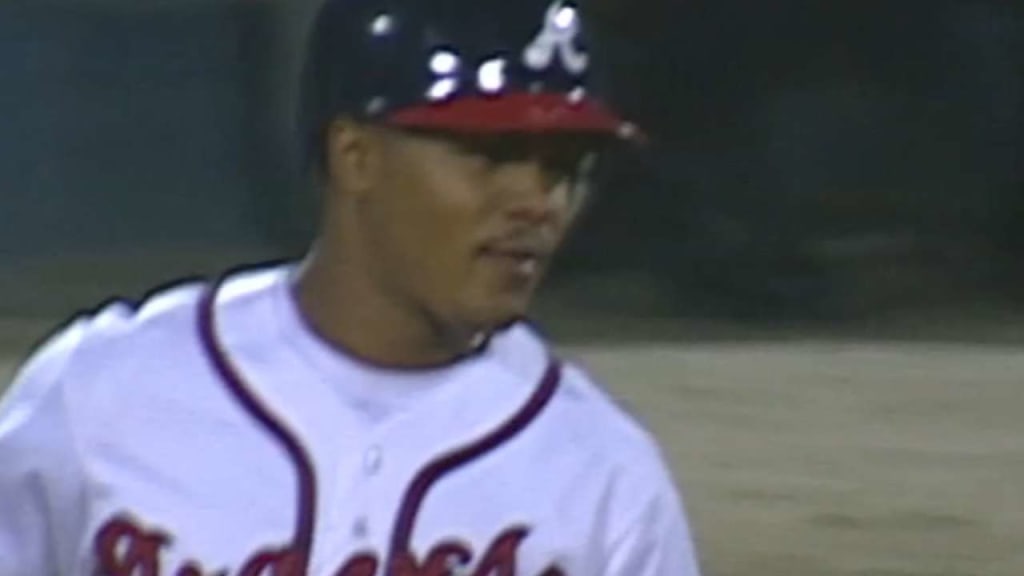Andruw's astounding peak may lift him to Hall
This browser does not support the video element.
ATLANTA -- Because his career declined rapidly after he turned 30, it is easy to assume Andruw Jones will fall short of being elected to Baseball's Hall of Fame. But voters would be negligent to overlook his intriguing resume, which might still be deemed Cooperstown worthy based on its numerous highlights.
Just a decade ago, when Jones had collected a decade's worth of Gold Gloves Awards and positioned himself for a realistic shot to join the 500-homer club, it would not have been outlandish to project him to be a first-ballot Hall of Famer.
But as the former center fielder finds himself on the ballot for the first time this year, Jones appears more likely to experience the same frustration that has been felt by Alan Trammell, Fred McGriff, Dale Murphy and some of baseball's other greats who were forced to view the balloting process as an annual reminder that their stellar careers were not deemed Cooperstown worthy.
Jones batted .254, tallied 434 home runs and constructed an .823 OPS over a 17-year career that included 10 Gold Glove Awards, five All-Star appearances and the National League Hank Aaron Award he captured in 2005 when he finished second to Albert Pujols in balloting for the NL Most Valuable Player Award.
This browser does not support the video element.
But Jones was the author of an uneven career that started with a bang and ended with a thud. He produced MLB's third-best WAR from 1998-2007. The two players who ranked ahead of him within this span were Barry Bonds and Alex Rodriguez. The man ranked immediately behind him was his longtime Braves teammate Chipper Jones, who will likely gain a first-ballot induction when this year's Hall of Fame results are announced in January.
Andruw Jones' resume is highlighted by the 10 consecutive Gold Glove Awards he captured from 1998-2007. Hall of Famers Willie Mays, Roberto Clemente, Al Kaline and Ken Griffey Jr. stand with Ichiro Suzuki as the only other outfielders to win as many Gold Glove Awards.
When Jones won his 10th Gold Glove Award at 30 years old, there was certainly reason to wonder if he would surpass the career record (12) shared by Clemente and Mays. But as his legs and athletic frame deteriorated, he made just 68 more starts as a center fielder and a total of just 241 more starts as an outfielder over the five seasons that followed.
This browser does not support the video element.
Through his age-29 season in 2006, Jones had tallied 342 home runs. The slightly above average 116 OPS+ he constructed within this span wasn't necessarily Hall worthy, but it was certainly much more impressive than the 92 OPS+ he compiled as he batted .214 and totaled just 92 home runs over the final six seasons of his career (2007-12).
Jones' offensive decline blemished the greatness he produced at the start of his career. Still, he will forever be considered one of the game's greatest defensive outfielders, and his standing within this category might have been further appreciated had Statcast™ been around in time to provide a clearer understanding of how Jones compared to Mays and the game's other all-time great center fielders.
This browser does not support the video element.
Voters were willing to provide Ozzie Smith a first-ballot induction in 2002 based solely on the defensive greatness he displayed over a 19-season career, within which he became widely recognized as the best shortstop in Major League history.
But when former outfielder Jim Edmonds received just 2.5 percent of the vote when he was on the ballot for the first time last year, Hall of Fame voters provided a reminder that defensive excellence is often overlooked. Edmonds captured eight Gold Glove Awards, and his 64.5 fWAR is comparable to the 67.1 mark Jones produced during his career.
This browser does not support the video element.
As Jones spent a decade proving elite at one of the game's most demanding positions, he earned the privilege of being included in any argument about the best center fielder in baseball history.
But with his rapid decline, Jones also likely earned the unenviable fate of spending the next decade being annually reminded that his great career was not good enough to be deemed Cooperstown worthy.

